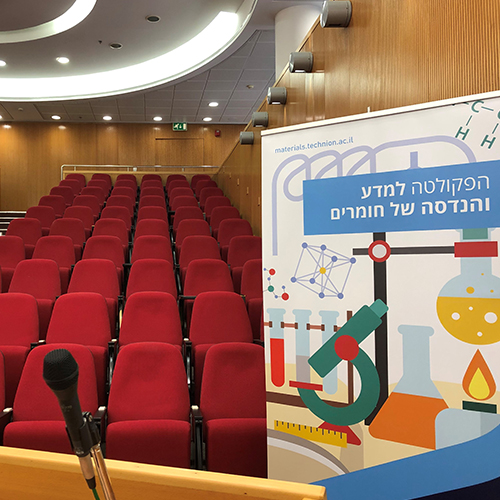
Ms. Eti Barazani MSc candidate
13.11.2022
David Wang Auditorium, 3rd floor Dalia Meidan Bldg.
14:30
Mott insulators are strongly correlated materials which may exhibit coupled structural, magnetic and electronic phase transitions. The electronic insulator-to-metal transition can be harnessed for novel switching applications such memory storage, selectors for ReRAM, optical switches, and emulation of synaptic and neuronal functionalities in the brain.
The research presented in this seminar focuses on the effects of strain on the properties of insulator-to-metal transitions in thin films of the archetypal Mott insulator V2O3. To induce different strains, we grew V2O3 films on sapphire substrates cut along various crystallographic orientations. Using a combination of temperature dependent X-ray diffractometry, conductive atomic force microscopy and transport measurements, we unveiled the most important structural degrees of freedom dominating the V2O3 phase diagram. This enabled us to induce a room-temperature Mott transition which is crucial for applications in ambient conditions. Subsequently, we examined the effects of strain on the electrically driven insulator-to-metal switching by varying the direction of the electric field with respect to the crystallographic orientation of the film. We find that strain can affect the energy efficiency and resistive transition of Mott-transition based devices. Our results pave the way towards harnessing strain as an important tuning parameter determining both equilibrium and dynamic processes in applications of Mott insulators.
BIO
Graduate of the faculty (material engineering and chemistry).


